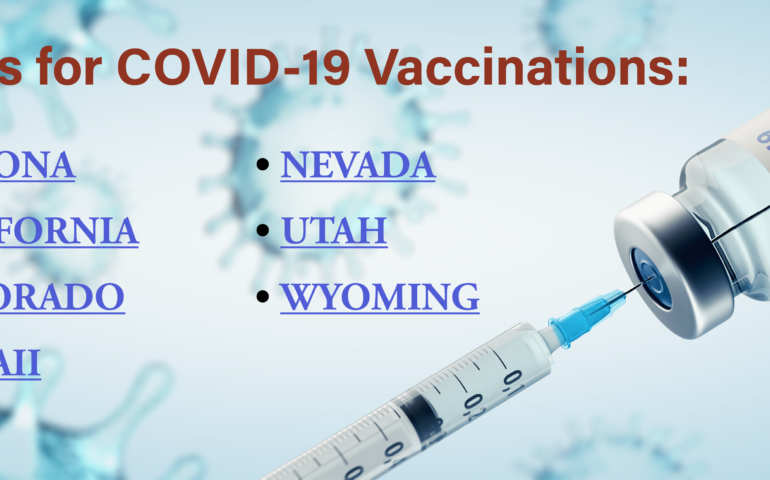States Prioritize Essential Workers
Last month we discussed whether employers will be able to require employees to obtain a COVID-19 vaccine as a condition of returning to, or remaining in, the workplace. We noted at that time that the conditions for and lawfulness of mandatory vaccination policies was unclear, but that guidance was anticipated from the US Equal Employment Opportunity Commission (EEOC) that would (hopefully) clarify this issue and provide a roadmap for employers and employees dealing with this novel workplace issue.
On December 16, 2020, the EEOC updated its ongoing COVID-19 guidance with questions-and-answers specifically addressing mandatory COVID-19 vaccination policy issues. The short version of this guidance is that employers can implement and enforce mandatory COVID-19 vaccination policies for employees, with certain exceptions and caveats. Here are the key takeaways:
- Employers can require that employees receive the COVID-19 vaccine (once it is available) as a condition of returning to, or remaining in, the workplace.
- However, employers must attempt to accommodate employees who, due to medical disabilities or sincerely-held religious beliefs, decline or refuse to receive the vaccine.
- If an employer determines, based on objective evidence, that the presence of an unvaccinated employee (i.e., one who declines or refuses to be vaccinated against COVID-19 for disability or religious reasons) presents a direct threat to the health and safety of persons in the workplace that cannot be reduced or eliminated through a reasonable accommodation, the employer can exclude the employee from the workplace.
- When the employer excludes an unvaccinated employee from the workplace due to the perceived direct threat presented by his or her presence in the workplace, the employer may not automatically terminate the employee, but instead must assess whether other accommodations, such as remote work, can be provided.
The guidance offers more details.
- Administration of a COVID-19 vaccine by an employer, or by a third-party with which the employer has contracted to provide vaccinations to employees, such as an outside health care clinic or similar provider, is not a “medical examination” for purposes of the Americans with Disabilities Act (ADA) because the employer is not seeking information about the employee’s current health status. The guidance further clarifies that administering the vaccine or requiring employees to provide proof of vaccination does not implicate the Genetic Information Non-Discrimination Act (GINA) because an employee’s genetic information is not being used to make employment decisions and no genetic information is being acquired by the employer or disclosed by the employee.
- Even though administration of the vaccine is not a “medical examination” under the ADA (if it were, the employer would have to demonstrate job-relatedness and business necessity before conducting the examination), the guidance notes that, according to the US Centers for Disease Control and Prevention (CDC), health care providers should ask certain pre-vaccination screening questions to ensure there is no medical reason for a person not to receive the vaccine. These questions (as opposed to the administration of the vaccine itself) may constitute a “medical examination” under the ADA because they could inquire into a person’s disability status. Accordingly, if an employer is going to require that employees answer pre-vaccination screening questions that are disability-related, the employer must be able to demonstrate that the questions are job-related and consistent with business necessity, which can be shown if the employer has a reasonable basis to believe, based on objective evidence, that an employee who does not answer the questions – and therefore does not receive the COVID-19 vaccine – presents a direct threat to his/her own health or safety or that of others. The guidance further notes that these pre-vaccination screening questions could implicate GINA to the extent they elicit disability-related information, but notes that it is unclear at this time what potential genetic conditions will be included in the screening checklists for vaccine contraindications.
- Although asking pre-vaccination screening questions may be a disability-related inquiry, asking or even requiring employees to show proof they received a COVID-19 vaccine is not a prohibited inquiry under the ADA because it is not likely to elicit information about an employee’s disability status. However, the guidance cautions that if an employee indicates he or she did not receive the vaccine, an employer should be careful not to ask why they did not receive it, because that could be a prohibited disability-related inquiry unless the employer can show that its questioning was job related and consistent with business necessity. Employers who ask employees to provide proof of vaccination also should exercise caution to ensure that the information the employee provides does not disclose any medical information beyond proof of vaccination.
- The ADA permits employers to exclude employees from the workplace who present a direct threat to the health or safety of persons in the workplace. Therefore, an employer can require that employees be vaccinated to reduce that threat. However, some employees may be unable to receive the vaccine due to medical conditions constituting a disability. In that case, before excluding that employee from the workplace, the employer must demonstrate that the unvaccinated employee presents a significant risk of substantial harm to health or safety that cannot be eliminated or reduced through reasonable accommodations. In other words, the employer must attempt to accommodate an employee who cannot receive the vaccine due to a disability unless there is no reasonable way to do so. Employers must assess four factors in making this determination: 1) the duration of the risk presented by the unvaccinated employee; 2) the nature and severity of the potential harm presented by the unvaccinated employee’s presence in the workplace; 3) the likelihood that harm will occur; and 4) how imminent that harm is to others in the workplace. Only after conducting this analysis and concluding that the disabled employee cannot be reasonably accommodated can the employer exclude the employee from the workplace. That does not mean that the employer may terminate the employee’s employment. Rather, it means that the employer will need to assess if other accommodations can be provided to permit the employee to continue working, such as permitting the employee to work, or continue to work, remotely, or having the employee work in another location on-site where the threat is reduced or eliminated.
- Employers also must accommodate employees whose sincerely-held religious beliefs prevent them from receiving the COVID-19 vaccine, unless doing so would present an undue hardship to the employer. If that is the case, the employer can exclude the employee from the workplace, but, as with disabled employees, cannot automatically terminate the employee and must determine if any other accommodations can be provided to permit the employee to continue working.
Given the skepticism expressed by many concerning the safety of the COVID-19 vaccine, employers undoubtedly will confront vaccination-related issues, whether they implement mandatory vaccination policies or not. We’ll continue to monitor and report on developments in this area.
© Copyright 2020 Squire Patton Boggs (US) LLPNational Law Review, Volume X, Number 351 Daniel B. Pasternak Partner
Dan Pasternak works with employers to solve workplace problems. Sometimes that involves helping develop, implement and enforce effective and business-sensible employment and traditional labor relations policies and practices. Other times, it involves representing employers in high-stakes litigation matters.
For more than two decades, Dan has advised employers in managing one of their most important assets – their human resources. From leading workplace investigations and crafting executive and non-executive employment, retention and separation contracts, to designing and supporting…
daniel.pasternak@squirepb.com 602-528-4187 www.squirepattonboggs.comwww.squirepattonboggs.com/en/blogs
Source: National Law Review










